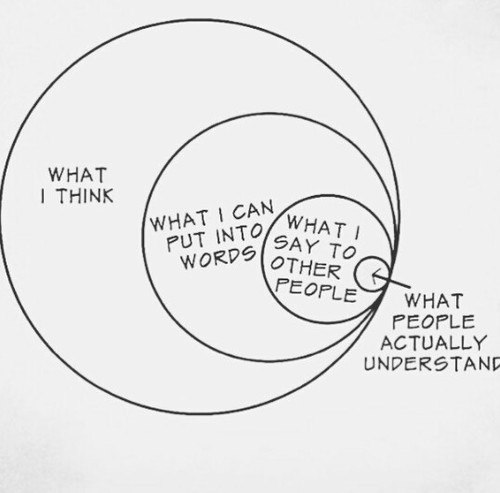Photo

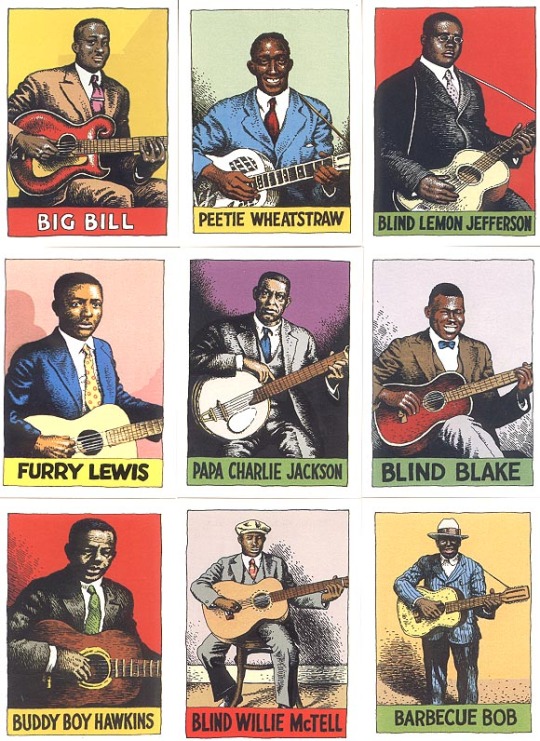
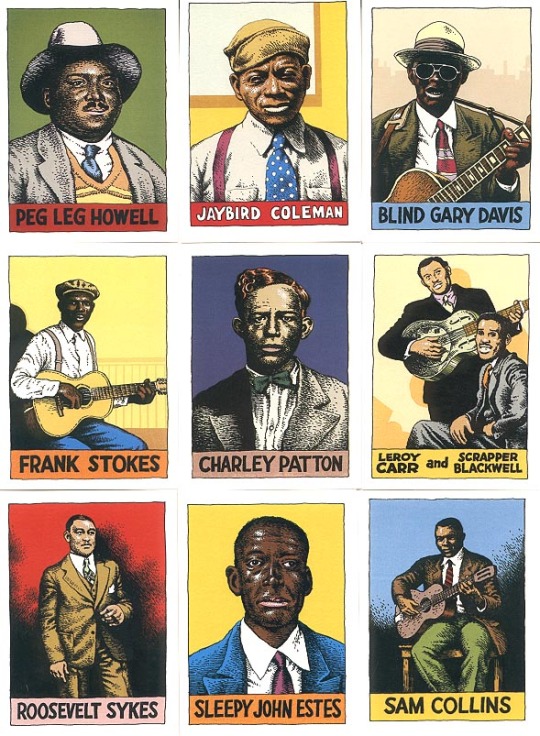

Robert Crumb’s “Heroes Of The Blues” trading cards. It’s called “heroes” of the Blues because they were the God’s who created modern music as we know it.
Someday I will own that R. Johnson card…I need him, Jaybird and Minnie to complete the series.
21K notes
·
View notes
Photo

no fake, tutto vero: https://www.facebook.com/vfeltri/posts/659159854433264
21 notes
·
View notes
Photo

Se proprio vuoi ispirati a #mussolini
dovresti ricordar caro salvini
il popolo che tanto l'ha osannato
le spalle un giorno al porco gl'ha girato
e mentre lui fuggiva da vigliacco
da quel che fu l'italico bivacco
per dimostrar di non volerlo più
lo appesero a Milano a testa in giù
@pasquino2000
81 notes
·
View notes
Text
Il tintinnare le manette
ATTUALMENTE UN RAGAZZO CHE NON ABBIA ANCORA COMPIUTO14 ANNI, NON PUÒ ESSERE GIUDICATO E PUNITO
La giustizia minorile funziona, perché la vogliono cambiare?
DAMIANO ALIPRANDI
«Più carceri da costruire, via la sorveglianza dinamica dunque detenuti da far marcire in cella per 20 ore al giorno, meno misure alternative, abbassare l’età della imputabilità per i minori ( 12, 10 anni?), più galera ancora nel caso di furti, uso sempre legittimo delle armi per difendersi, più libertà per i poliziotti nell’uso delle pistole Taser e tante altre robacce. Contro la caduta nel baratro si sveglino le coscienze democratiche». Così tuona pubblicamente il presidente dell’associazione Antigone Patrizio Gonnella riferendosi alla bozza del contratto Lega – M5S che, dopo gli ultimi ritocchi, verrà presentato al presidente della Repubblica Sergio Mattarella. Sul fronte giustizia e area penitenziaria ci sono diversi punti: la legittima difesa domiciliare, l’inasprimento delle pene per violenza sessuale, furto, scippo, rapina e truffa, nonché ' una seria riforma della prescrizione dei reati' senza tuttavia specificare come attuarle. Si parla di una stretta sulla imputabilità e sugli sconti di pena per i minori in maniera vaga e senza stabilire in che modo. Nella bozza c’è scritto testualmente: “A fronte di una progressiva precocità di comportamenti criminali, anche gravi, da parte di minori, occorre rivedere in senso restrittivo le norme che riguardano l’imputabilità, la determinazione e l’esecuzione della pena per il minorenne, eliminando inoltre la possibilità di trattamento minorile per il c. d. ‘ giovane adulto’ infra - venticinquenne”.
In che modo verranno riviste le norme? Un indizio lo ritroviamo quando scrivono che intendono rivedere “in senso restrittivo” le norme che riguardano l’imputabilità. Sottintendono quindi l’abbassamento dell’età minima di punibilità. Ma perché nel sistema della giustizia minorile esiste una soglia d’età? Se l’autore del fatto criminoso è un ragazzo che non abbia ancora compiuto il quattordicesimo anno di età, egli non potrà essere giudicato e punito. Diversa è la questione se il minore abbia un’età compresa tra i 14 e i 18 anni. Egli sarà considerato giudicabile, e il procedimento penale non avrà corso innanzi all’autorità giudiziaria ordinaria, ma innanzi al giudice del Tribunale per i Minorenni. Tale si- tuazione è frutto della fondamentale impostazione del nostro sistema penalistico, in forza della quale per essere considerati punibili con riguardo alla commissione di un dato fatto è necessario essere capaci di intendere e volere, ossia capaci di comprendere e volere, autodeterminandovisi, il mantenimento di una data condotta avente rilevanza penale. Il minore che abbia compiuto i quattordici anni potrà essere sottoposto a procedimento penale, ma a condizione che si sia correttamente rappresentato e abbia coscientemente voluto il comportamento penalmente rilevante per il quale subisce il giudicato. Abbassare la soglia, quindi, creerebbe un enorme problema e non servirebbe a nulla. Se ci trovassimo a discutere se un dodicenne sia in grado di intendere e volere, ovviamente la risposta sarebbe negativa.
Ma funziona attualmente la giustizia minorile? È il nostro fiore all’occhiello. Sarebbe deleterio modificarlo. Le cifre aggiornate dall’ultimo rapporto di Antigone riferiscono che nelle celle ci sono poco meno
di 500 ragazzi: oltre metà di loro sono giovani adulti, cioè detenuti con meno di 25 anni che stanno scontando nelle carceri minorili le pene per reati commessi quando ancora non avevano raggiunto la maggiore età. Decisamente più ampio è invece il numero di coloro che passano per la cosiddetta “messa alla prova”, una soluzione che permette ai giudici di imporre ai ragazzi un periodo in comunità al termine del quale valutare il percorso di maturazione ed eventualmente dichiarare estinto il reato, senza lasciarne traccia sul casellario giudiziario. Nel 2016 ne hanno beneficiato oltre 3.700 giovani. Ed è lì che muovono i primi passi verso il ritorno alla normalità. Il punto del contratto leghista e pentastellato è evidentemente scaturito dall’allarmismo suscitato dai gravi fatti di cronaca: le famigerate baby gang. Eppure dai dati messi a disposizione dal Dipartimento Giustizia Minorile, i soggetti presi in carico per la prima volta dalla giustizia minorile, sono diminuiti dai 5.607 del 2017 ai 5.148 di quest’anno. La peculiarità del sistema giudiziario minorile è che non si basa sulla mera punizione. Il principio del diritto penale minorile italiano si basa perseguendo sempre il recupero del minore sia con lo strumento della sanzione che con la rinuncia ad essa. Dopo l’arresto in flagranza o il fermo di polizia, inizia a carico del minore il provvedimento giuridico.
Durante le indagini preliminari, il pubblico ministero decide se il minore debba essere rimesso subito in libertà oppure condotto in un Centro di Prima Accoglienza in cui rimane per il tempo necessario all’autorità giudiziaria per decidere della sua sorte. In caso di imputazioni lievi il minore può anche essere accompagnato presso la propria abitazione o presso Comunità pubbliche, private, associazioni o cooperative riconosciute, che lo ospitano fino all’udienza di convalida. Trascorso questo periodo preliminare, il giudice stabilisce il provvedimento da adottare che può essere: la custodia cautelare, ossia il trasferimento del minore in un Istituto penale minorile prevista per i reati con pene superiori a 9 anni, giustificata dal pericolo di inquinamento delle prove, di fuga, di reiterazione del reato; il collocamento in Comunità, cioè l’ affidamento a una comunità pubblica o autorizzata, imponendo eventuali prescrizioni sull’attività di studio o di lavoro per la sua educazione; permanenza in casa, ovvero l’obbligo di rimanere presso l’abitazione familiare o altro luogo di privata dimora con limitazioni o divieti alle facoltà del minore di comunicare con persone diverse da quelle che con lui coabitano o che lo assistono, salvo eccezioni come le esigenze di studio o di lavoro o altre attività educative; sospensione del processo e messa alla prova, ovvero quando il giudice richiede al servizio sociale un progetto di intervento alla fine del quale sarà tratto un bilancio. Se il Tribunale ravvisa un’evoluzione della personalità dell’imputato, dichiara con sentenza l’estinzione del reato. Perché cambiare un sistema che funziona?
SECONDO L’ULTIMO RAPPORTO DI ANTIGONE NELLE CARCERI MINORILI CI SONO POCO MENO DI 500 RAGAZZI: OLTRE METÀ DI LORO SONO GIOVANI ADULTI, CIOÈ DETENUTI CON MENO DI 25 ANNI
da: http://ildubbio.ita.newsmemory.com/
0 notes
Photo


Celtic fans hold up Palestine flags against Israel team Hapoel Be'er Şeva clash. Just fabulous!!!
841 notes
·
View notes
Link
#20NDurruti Al capitalismo no se le discute, se le destruye.
8 notes
·
View notes
Text
What Would Happen If an Entire Nation Stopped Eating Meat?
A little cow.
I think, deep down, we all know the meat industry isn’t that great. Whether you’ve watched Cowspiracy, read those George Monbiot-type articles about how meat production is catastrophically bad for the environment, or just listened to someone at a party go on about how Food, Inc. was, like, so dark it almost made him or her give up eating burgers, you’re likely aware of the ramifications of industrial animal farming.
So it’s no wonder that around 20 percent of 16- to 24-year-olds in the UK now follow a vegetarian or vegan diet, and around 12 percent of all adults in the UK are vegetarian. The amount of red meat being eaten in Britain has declined almost year-by-year since 1950, and this trend looks set to continue.
Which makes you wonder: What would actually happen if the whole of Britain just stopped eating meat? Would farmers all lose their jobs? Would we be healthier and happier? Would the streets look like something out of a Mike Leigh film, grayscale, with loads of people sitting around starved of protein, their hair falling out, their translucent skin bruising at the lightest touch?
To find out, I spoke to experts in food policy, environmental science, and meat-related health.
IMPACT ON THE ECONOMY AND FARMING
Timothy Lang, Professor of Food Policy at City University London
VICE: Would it be possible to maintain a farming industry without animals here in Britain?
Timothy Lang: Well, that’s a big debate going on in my world: Can we imagine British farming without animals? Or can we imagine carrying on doing what we’re doing and making it even more brutal? Animals, cows, and sheep are major sources of greenhouse gasses, and we’re using a lot of “hidden” land for them. The Amazonian rainforest is being chopped down for the purpose of growing soya, which is then fed to the animals in Europe which you eat. We’re growing a huge amount of cereals here in Britain and across Europe, which are then fed to animals. Animals used to be part of a fertility cycle, a rotation in farming, but have become an end in themselves. We’ve made animals not just competitors to us in terms of land use, but also major users of land, resources, and indeed food. We have to dramatically reduce animal use in Britain.
What would actually happen to our farming landscape if meat was taken out of the equation?
Well, for a start, we would dramatically increase our horticulture. The good things for your diet and mine are actually plants. Fruits, vegetables, cereals—staple foods. And there has been a catastrophic drop in the production of these things in Britain. If we stopped eating meat we would have to resuscitate and reinvest and re-skill ourselves in horticulture. And we have to do that anyway, certainly with climate change. When I was a farmer in the uplands on the Pennines, 50 years or so ago, even then, we experimented with growing crops in parts where people would say, “Oh, that’s sheep country.” You could grow swedes, turnips, brassicas, and potatoes very easily and very well, and historically they did.
We would have to re-skill a lot. It would mean the transformation of British agriculture. The politicians are frightened, but they have to address this issue. Climate change is going to make them do it. The food system is being forced to change by climate, by water stress, by population changes, by geopolitics. We’ve got a food system based on a population being well fed by very, very intense agricultural methods. We now know that has to change.
How long would it take for farmers to re-learn and shift their methods?
That can’t be done tomorrow. It’s taken 50 to 70 years to get into the mess we’re now in. We have to make a very dramatic change in approach very quickly. We should have a 30-year plan. The Labour government started a 20-year plan and then the coalition abolished it and nothing happened. They went back to a Thatcherite notion that markets will resolve themselves. The current government is working on a 25-year food strategy, but it’s all about supporting industry and industry taking a lead. Industry cannot resolve this. It’s going to have to be consumer culture changes. I’m a critic of the thinking that’s going on at the moment in government. As a public, we’re going to have to take the movement toward discussion.
IMPACT ON THE ENVIRONMENT
Nick Hewitt, Professor of Atmospheric Chemistry, Department of Environmental Science, Lancaster University
VICE: What would happen to the environment if we all stopped eating meat?
**Nick Hewitt: **Eating meat makes a large contribution to the greenhouse gasses that people in the UK produce. If everyone stopped eating it, the food-related greenhouse gas emissions would reduce by about 35 percent. It’s one very effective way to make a big dent in emissions.
Why?
It’s particularly cattle—beef is by far the worst. Cows chew grass and digest it in conditions in the stomach with no oxygen, and that releases methane. That’s the principle reason. Also, the way the grassland is fertilized causes greenhouse gas emissions. Transporting the food around does contribute, but it’s relatively small, unless you use air freight. Lorries aren’t too bad. The biggest lifestyle choice you could make to reduce greenhouse gasses is to stop eating meat. It’s hard to think of another single lifestyle change we could make that would have the same effect.
So using the same farmland for plants would be the quickest way to reduce emissions?
Yeah. You’d still have to be careful with your fertilization, but using land for meat is the least efficient way of producing protein. It’s just an inefficient way of producing food. By growing plants on the land and eating those, it’s much more efficient, so we would be greatly reducing those greenhouse gas emissions.
**Would it make more of a difference if everyone was vegan? **
Yeah, it would make more of a difference, because obviously if you’re vegetarian but eat cheese that’s related to the dairy industry and cows. If you eliminate cheese and meat, you’d reduce emissions even further.
Hypothetically, then, meat-free Britain is a lot cleaner.
Our government has put targets on the national greenhouse gas emissions and said that, by 2050, UK emissions have to be reduced by 80 percent of what they were in 2010. It’s very hard to see how we’d ever meet that target without reducing emissions from every sector—transport, heating, fuel, food. Food currently makes up about 20 percent of total emissions. If the government wants to reduce [emissions] by that overall figure, we have to reduce emissions from food.
Why isn’t the government telling us that via campaigns or something?
What the government is trying to do at the moment is reduce food waste. So, obviously, the more food wasted—and there is a hell of a lot of food wasted—the more unnecessary emissions there are. So if you cut waste, you’ll cut emissions. That’s the government’s focus right now. If the government is serious about this it would try to introduce interventions to get people to eat less meat or go vegetarian. The numbers show that. So, hypothetically, if we were all vegetarian in this country, we’d change things drastically. Sadly, in some very large countries, meat is seen as a status symbol and its consumption is increasing drastically. Anything we can do to help that is a help.
IMPACT ON THE HEALTH OF THE POPULATION
Ian Givens, Professor of Food Chain Nutrition at University of Reading’s School of Agriculture
VICE: What would happen to the health of British people if we all gave up meat?
Ian Givens: There isn’t any real association between white meat and cancer or cardiovascular problems. It tends to be relatively neutral.
Red meat, though, is a different story. There is an issue in Britain of malnutrition of young females. There is good evidence from several surveys that women, especially between the ages of 11 and 18, have a suboptimal level of a number of key nutrients, and one is iron. In fact, half the population is below the lowest level of iron intake. If you look back over the last ten years or more, there’s been a consistent decrease in iron intake, and that—without too much of a doubt—is down to the reduction of red meat intake, because it’s the best form of iron. The question is: Does that matter? Probably not in the short term, but one wonders what happens in the long term.
**So we’d have to make sure we were supplementing young women, especially with more nutrients? **
That’s what the evidence suggests. There are other issues about zinc and vitamin B12, which would have to be supplemented. But then you have to balance that with the fact that red meat increases the risk of getting colon cancer. Most evidence now says that processed meat has a high increase of relative risk for colon cancer, higher than red meat. If you look at the increase of cancer per amount of red meat per day, it’s still quite striking.
Overall, then, do you think this new Britain would be healthier?
There would be some health benefits. Colon cancer has the highest prevalence of any cancer that’s available to both men and women. The evidence suggests that the risks of colon cancer associated with processed meat especially would be reduced. Processed meat is bacon, sausages, salami, deli meat, hotdogs, luncheon meat, and so on. I’m less sure about red and white meats. The BMIs of vegetarians and vegans are also significantly lower, and they have lower risks associated with obesity.
1 note
·
View note
Link
w la più grande e “buona” democrazia del pianeta…
28 notes
·
View notes
Photo





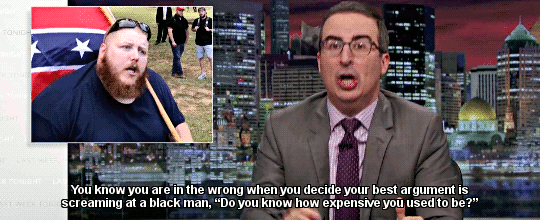
It is comments like that one that landed this guy on the cover of “Holy Shit: That Is Not Remotely The Point” magazine.
32K notes
·
View notes
Video
Shemika Charles is the world record holder for lowest limbo, and went underneath an SUV while holding drink.
104K notes
·
View notes
Photo
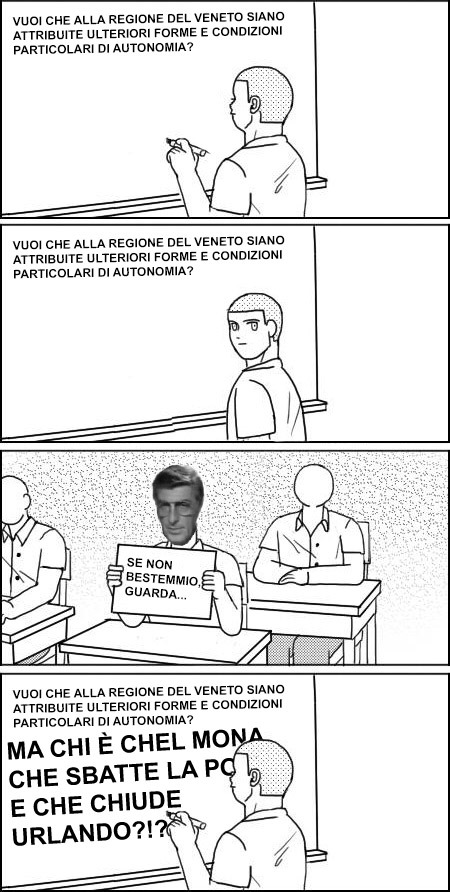
quei casi in cui rispondere a una domanda con un’altra domanda non solo è lecito, ma necessario
97 notes
·
View notes



